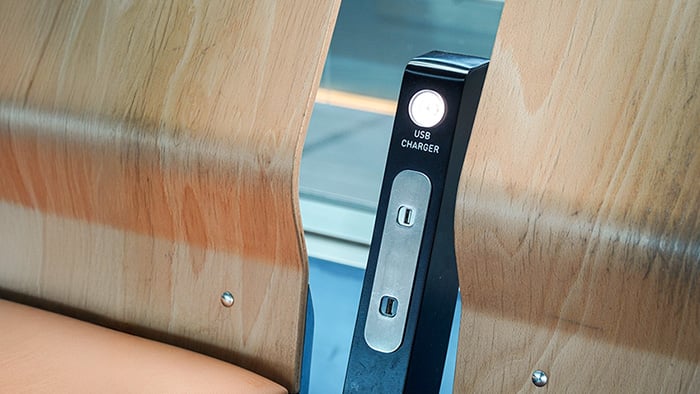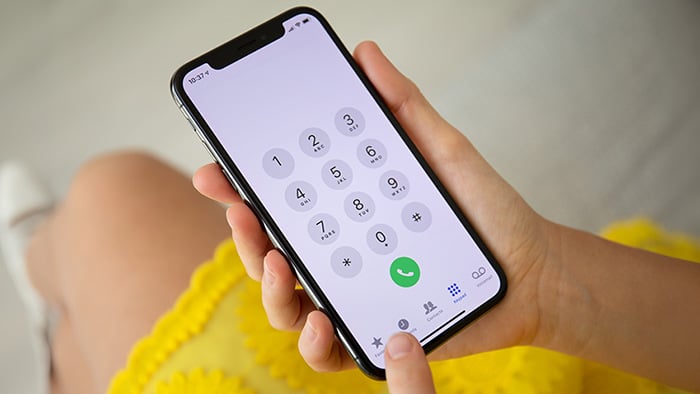Once you’ve put in the work to build a good credit score, your next best move may just be to freeze it. And you’ll almost certainly want to freeze your credit if your banking details have been exposed or your identity has been stolen.
Here, we’ll walk you through doing a free credit freeze with the major credit bureaus: Equifax, Experian, and TransUnion. Then, we’ll show you how to unfreeze your credit when you want to get back to work.
How to freeze your credit
To freeze your credit you need to contact the three major credit bureaus one by one. This is the only way to effectively freeze your credit and prevent any new credit cards or credit lines from being opened in your name. Call or submit an online request to each credit bureau individually. It’s fast, easy, and free.
-
Equifax: 1-888-298-0045
-
Experian: 1-888-397-3742
-
TransUnion: 1-888-909-8872
How to freeze credit on all three credit bureaus
The credit bureaus do not work together. They all follow the same laws and similar guidelines, but they’re different companies and work independently. That's why it's important to freeze your credit with all major credit reporting agencies individually, including Experian, Equifax, and TransUnion. To do so, contact the credit bureaus directly.
Fraudsters and scammers do not stop at just one credit bureau. If you fall victim to identity theft, you risk exposure from all sources of credit lending. So, if you put a credit freeze on only one or two of the credit bureaus, you risk a line of credit or credit card being issued in your name via a credit bureau you failed to contact.
There are pieces of personal information and specific documentation you need to successfully place a freeze on your credit report, including your social security number, date of birth, and address. Documentation required will depend on how you contact the credit bureau (by phone, mail, or online). Online is the simplest way, because it makes it easier to unfreeze your credit later.
 You can freeze your credit by phone, via email, or by going online.
You can freeze your credit by phone, via email, or by going online.
How to do an Equifax credit freeze
To do a credit freeze with Equifax, choose one of the following contact options:
-
Submit an online credit freeze request via Equifax's consumer services center.
-
Call Equifax's automated response credit freeze phone number: 1-800-349-9960.
-
Call Equifax's live-representative credit freeze phone number: 1-888-298-0045.
Learn more about freezing your credit with Equifax. For example, if you need to set up a pin for your credit freeze or you want to set a fraud or active military duty alert on your credit.
How to do an Experian security freeze
To do a credit freeze with Experian, also called a security freeze, use their website, call, or submit a written request by mail.
-
Submit a credit freeze request online on Experian's Credit Freeze Page.
-
Call Experian's credit freeze phone number: 1-888-EXPERIAN (1-888-397-3742).
-
Send a written credit freeze request by mail to: Experian Security Freeze, P.O. Box 9554, Allen, TX 75013.
For more information about how Experian handles credit freezes and security freezes, visit the credit freeze center on their website.
How to do a TransUnion credit freeze
To freeze your credit with TransUnion, use one of the following contact methods.
-
To request a credit freeze online, use the TransUnion Credit Freeze Online Form.
-
Call TransUnion's credit freeze phone number: 1-800-916-8800.
-
Send a credit freeze request by mail to: TransUnion, P.O. Box 160, Woodlyn, PA 19094.
For further details, like the 6-digit pin required with certain methods of credit freeze, check out the top credit freeze FAQs section of the TransUnion website.
How to unfreeze your credit
The easiest way to unfreeze your credit is to go to the website of the credit bureau you wish to unfreeze your credit with and submit a request using the same login details that you used to freeze your credit. It's possible to unfreeze your credit by phone or mail, but additional verifying information may be required. On the website, you can unfreeze your credit in a matter of minutes.
You may want to unfreeze your credit with just one credit bureau. For example, if you’re applying for credit with one lender and you know which bureau they’ll use to check your credit. If you want to unfreeze your credit score on all three of the major credit bureaus, you must contact each of them directly.
When and why should you freeze your credit?
You should place a freeze on your credit when you think someone has or may be trying to steal your identity. Identity theft is preventable, but it can happen to anyone. If you ever fall victim, it’s worthwhile keeping your credit frozen until you need to apply for credit.
If you find yourself in one of the following circumstances, you should always do a credit freeze.
-
You see unexplained collection notices or bills.
-
There are new credit account inquiries on your credit report.
-
Someone has hijacked your banking information via an ATM skimmer.
-
Your bank or credit union warns you of possible fraudulent activity on your account.
-
You have been the victim of a security breach or data breach.
Consider the larger picture and the pros and cons of freezing your credit. Generally, if you think your identity has been compromised, it’s a good idea to place a credit freeze to prevent further damage, unless you’re actively shopping for a line of credit. Identity theft is not to be taken lightly. It can even evolve into something as severe as home title theft.
 If you’ve been the victim of identity theft, freezing your credit can help you avoid further damage.
If you’ve been the victim of identity theft, freezing your credit can help you avoid further damage.
Remember, if identity theft has already occurred, freezing your credit is one route to minimize the fallout. But you must report identity theft as soon as possible to the authorities, and report an internet scam if you spot one.
 Pros of freezing your credit
Pros of freezing your credit
The main reason for enacting a credit freeze is to prevent or halt identity theft. Data brokers trade in personal data, and the internet is rife with scams. Some of the benefits of freezing your credit include:
-
Mitigating the risk of identity theft.
-
The fact that a credit freeze is free.
-
How easy it is to unfreeze your credit if you’re looking for a new line of credit.
-
Managing how many credit bureaus you want to freeze your credit with.
 Cons of freezing your credit
Cons of freezing your credit
Freezing your credit is important if you detect credit card fraud or want to prevent it. But, putting a freeze on your credit with the major credit bureaus is not without its own drawbacks. These cons include:
-
Having to contact each bureau individually to lift a freeze when applying for credit.
-
Delaying job applications or other processes that use your credit score.
-
Higher insurance quotes, because insurance companies only see a neutral score for frozen credit reports.
-
Inadequate protection against criminals who’ve already compromised your financial accounts.
Credit freeze or credit lock?
When it comes to a credit freeze vs a credit lock, the former offers better protection because, by law, you’re not financially responsible if someone abuses your credit when it’s frozen. By contrast, a credit lock is a more informal agreement between you and a credit bureau, and it doesn’t protect you if your credit is exploited.
How does a credit freeze compare with a fraud alert?
A fraud alert still lets you open a new line of credit, whereas a credit freeze doesn’t. A fraud alert simply means that lenders are supposed to verify your identity, but they aren’t required to, making this less secure than a credit freeze.
Fraud alerts bypass many of the cons of a credit freeze because lenders, potential employers, and other entities who may need to see your credit file, still can. However, extra identity verification is needed before any line of credit can be granted or a new credit account can be opened using your identity.
The three types of fraud alerts include:
-
Initial fraud alert: a basic type of fraud alert that lasts one year. An initial fraud alert is a smart move if a certain event puts you at increased risk of identity theft — like if you lose your credit card or spot unusual activity on your bank account.
-
Active duty fraud alert: similar to an initial fraud alert, but specific to those in the US armed forces who are serving abroad.
-
Extended fraud alert: a longer-term version of an initial fraud alert that lasts for seven years and requires actual fraud to have already occurred. To get an extended fraud alert, you have to present a copy of the fraud report you submitted to the police or relevant law enforcement agency.
How to freeze your child's credit
Children are also at risk of fraud, and it's up to parents to prevent child identity theft and remove fraud from their report. To complete a freeze on a child's credit, a credit file must exist. If one does not, the credit bureau will create the child's credit file and put a freeze on it.
In addition to providing the information required for an adult credit freeze, you must also confirm your child's identity and your relation to them. Child credit freezes can be managed by a parent or guardian for children under the age of 16.
Child identity theft has the potential to go unnoticed for many years, which might make freezing your child's credit file before it even exists appealing. If you do so, no one will be able to fraudulently take out credit in their name.
Who can access frozen credit reports?
Some people, including yourself, will still have access to your credit report even if your credit is frozen. A freeze does not delete or reset your credit; it simply makes new lines of credit or accounts in your name harder to open, while limiting access to your credit history.
Here’s a list of those who can access your frozen credit report:
-
Companies you’ve taken out credit with and collection agencies.
-
In some instances, government agencies or courts.
-
Companies that want to make you pre-approved offers of insurance or credit.
-
Companies that use the information for certain screening purposes like employment offers.
Protect your credit and financial accounts with Avast
Credit freezes are just one way to protect yourself from fraud and identity theft. The fallout from a false credit line taken out in your name is potentially massive. That’s why it’s important to take a proactive approach to cybersecurity and privacy.
With Avast One, you’ll get industry leading digital security, a powerful VPN, and an assortment of other online security and privacy tools. Avast will help you protect your personal data and keep your identity safe so you can live your digital life comfortably and confidently. Install Avast One today — completely free.
FAQs
What is a credit freeze?
A credit freeze blocks access to your credit reports, which protects against scammers' attempts to access your credit and open fraudulent accounts.
To protect your credit further, use a dedicated identity theft protection tool like Avast Secure Identity, which includes advanced monitoring features and specialized assistance tools.
Is it good to put a freeze on your credit?
The main benefit of freezing your credit is that it helps prevent identity theft and scams. Just remember to unfreeze your credit when you want to apply for credit or insurance.
Does putting a freeze on credit hurt your credit score?
No, freezing your credit doesn’t hurt your credit score. But, if you want a new line of credit, you must unfreeze your credit first to make your credit report accessible to potential lenders.
How do I freeze the 3 credit bureaus?
The three main credit bureaus operate independently of one another. You’ll need to contact Equifax, TransUnion, and Experian to request a freeze. The best way is via their website or by phone.
How long do credit freezes last?
There is no time limit on a credit freeze — it will last until you request it to be removed. If you want a temporary solution, you could consider a fraud alert, although the level of protection isn’t as high.



 You can freeze your credit by phone, via email, or by going online.
You can freeze your credit by phone, via email, or by going online. If you’ve been the victim of identity theft, freezing your credit can help you avoid further damage.
If you’ve been the victim of identity theft, freezing your credit can help you avoid further damage.










